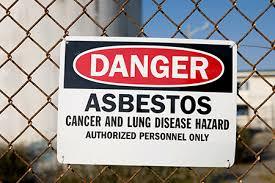Rhode Island Judge Allows Mesothelioma Lawsuit to Proceed Against Crane Co.
A Rhode Island Superior Court Judge rejected an asbestos manufacturer’s attempt to dismiss a lawsuit brought by the family of a mesothelioma victim who was exposed to asbestos by contact.

Boston, United States – May 30, 2018 /PressCable/ —
59-Year-Old Woman Died Following Secondary Exposure to Asbestos 28 Years Earlier
Since 1972, the United States Government has warned manufacturers about their duty to minimize secondary exposure to asbestos-containing materials. Such exposure often occurs when asbestos fibers are transmitted via an exposed employee’s clothing to other members of their household. For this reason, Occupational Safety and Health Administration (“OSHA”) regulations require employers to take appropriate precautions — including, but not limited to, providing exposed employees with special clothing — to minimize the potential for secondary exposure.
Companies who refused to take such precautions may be legally liable for third parties who later develop mesothelioma, a deadly cancer that develops in the lungs and chest following to the inhalation of asbestos fibers. Because mesothelioma has an especially long latency period – more than 40 years in some cases — victims may be entitled to seek relief even decades after the initial exposure.
For example, on April 16, 2018, a Rhode Island Superior Court judge denied a motion to dismiss a mesothelioma-related lawsuit arising from alleged secondary exposure to asbestos that occurred in 1979 and 1980. The plaintiffs are family members of Iva Pearl Jones, a 59-year-old woman who died from mesothelioma in 2007, two years after she was first diagnosed. Back in 1979, Ms. Jones lived with her brother-in-law, Stanley Nichols, who worked for Crane Co., a well-known manufacturer of asbestos-containing products.
According to the lawsuit, Nichols v. Allis Chambers Product Liability Trust, Ms. Jones regularly laundered Mr. Nichols’ work clothing. At the time, Crane did not issue uniforms to employees who worked with asbestos, despite the fact OSHA regulations had placed employers on notice of the risk of secondary asbestos exposure as far back as 1972, seven years before Mr. Nichols began working for the company.
In denying Crane’s motion for summary judgment, Rhode Island Superior Court Associate Justice Sarah Taft-Carter noted that the state’s courts had not previously “addressed the question of [a manufacturer’s] duty in a secondary exposure case.” Without reaching the merits of the lawsuit, Judge Taft-Carter said the evidence presented by the plaintiffs was sufficient for a jury to conclude that Crane “knew or should have known that asbestos could be transmitted on an employee’s clothing and that asbestos fibers and dust presented a health hazard, yet operated its facility in a way that did not prevent foreseeable harm.” Given this, a jury could also find that Crane owed a duty to third parties like Ms. Jones and was therefore responsible for her death.
Boston mesothelioma and toxic torts attorney Andrew Wainwright congratulates the Rhode Island plaintiff’s firm who argued the case. According to Wainwright, the judge’s ruling was a victory for common sense and welcome news for other victims of secondary asbestos exposure. “The relationship between asbestos exposure and the development of mesothelioma is long settled. As the judge in this case explained, in the early 1970s OSHA told employers who handle asbestos they had a responsibility to protect the public from secondary exposure. Because injuries to family members was foreseeable to these employers, they can be held liable for the harm they caused many years later.”
Contact Info:
Name: Patricia Flannery
Email: pflannery@tenlaw.com
Organization: Thornton Law Firm LLP
Address: 100 Summer St #3000, Boston, Massachusetts 02110, United States
Phone: +1-617-720-1333
For more information, please visit http://www.tenlaw.com/
Source: PressCable
Release ID: 352802